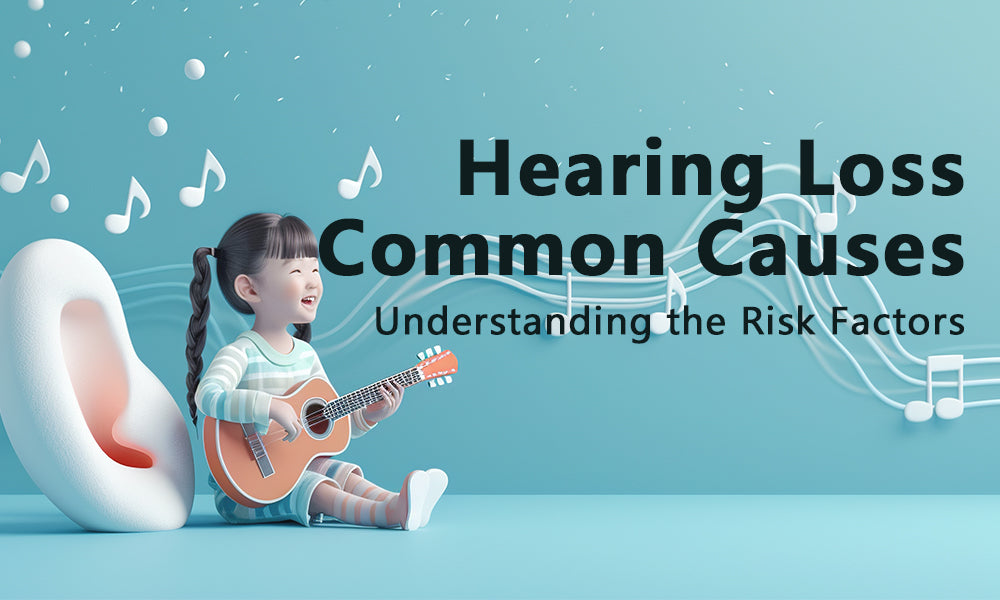Hearing loss is a condition that affects millions of people worldwide, impacting their ability to communicate and engage with the world around them. While it may seem like an inevitable part of aging, hearing loss can often be prevented or managed when we understand the causes and take proactive steps to protect our hearing. Whether it's through lifestyle changes or medical interventions, recognizing the risk factors for hearing loss is essential for maintaining long-term hearing health.
Age-Related Hearing Loss (Presbycusis)
One of the most common causes of hearing loss is age-related degeneration, known as presbycusis. As we age, the auditory system gradually deteriorates, leading to a natural decline in hearing ability. This form of hearing loss typically affects both ears and progresses slowly over time. While presbycusis is a normal part of aging, there are ways to slow its progression, such as maintaining a healthy lifestyle, protecting your ears from loud noises, and seeking early intervention when signs of hearing loss appear.
Noise-Induced Hearing Loss
Prolonged exposure to loud noises is another major contributor to hearing loss. This can occur in various environments, including at concerts, in noisy workplaces (e.g., factories or construction sites), or when using power tools or firearms. Repeated exposure to sounds above 85 decibels can damage the sensitive hair cells in the inner ear, leading to permanent hearing loss. Protecting your ears with earplugs or earmuffs and limiting time spent in loud environments are simple yet effective ways to prevent noise-induced hearing loss.
Illnesses and Infections
Certain illnesses and infections can lead to hearing loss, either temporarily or permanently. Ear infections, particularly in children, can cause fluid buildup in the middle ear, impairing hearing. More serious illnesses, such as meningitis, measles, and mumps, can cause damage to the inner ear or auditory nerve, resulting in more significant hearing loss. Staying up to date on vaccinations and seeking prompt treatment for ear infections can reduce the risk of hearing loss due to illness.
Genetics
Heredity plays a significant role in determining a person's susceptibility to hearing loss. Some individuals are genetically predisposed to develop hearing loss earlier in life or at a more rapid rate. Inherited conditions, such as otosclerosis (abnormal bone growth in the middle ear), can lead to progressive hearing loss. If hearing loss runs in your family, it's important to have regular hearing check-ups and be aware of the early signs so that you can take action sooner.
Ototoxic Medications
Ototoxicity refers to the harmful effect that certain medications can have on the inner ear, leading to hearing loss. Some antibiotics, chemotherapy drugs, and diuretics are known to have ototoxic properties. For individuals taking these medications, it's crucial to monitor hearing health closely and discuss any concerns with a healthcare professional. In some cases, alternative treatments may be available to minimize the risk of hearing damage.
Hearing loss can have a significant impact on quality of life, but many causes are preventable when risk factors are managed. Whether it's protecting your ears from loud noise, seeking timely treatment for infections, or monitoring your hearing health as you age, taking proactive steps can make a big difference. By understanding the common causes of hearing loss, you can take control of your hearing health and reduce your risk of long-term damage. Don't wait until it's too late—start safeguarding your hearing today.
















